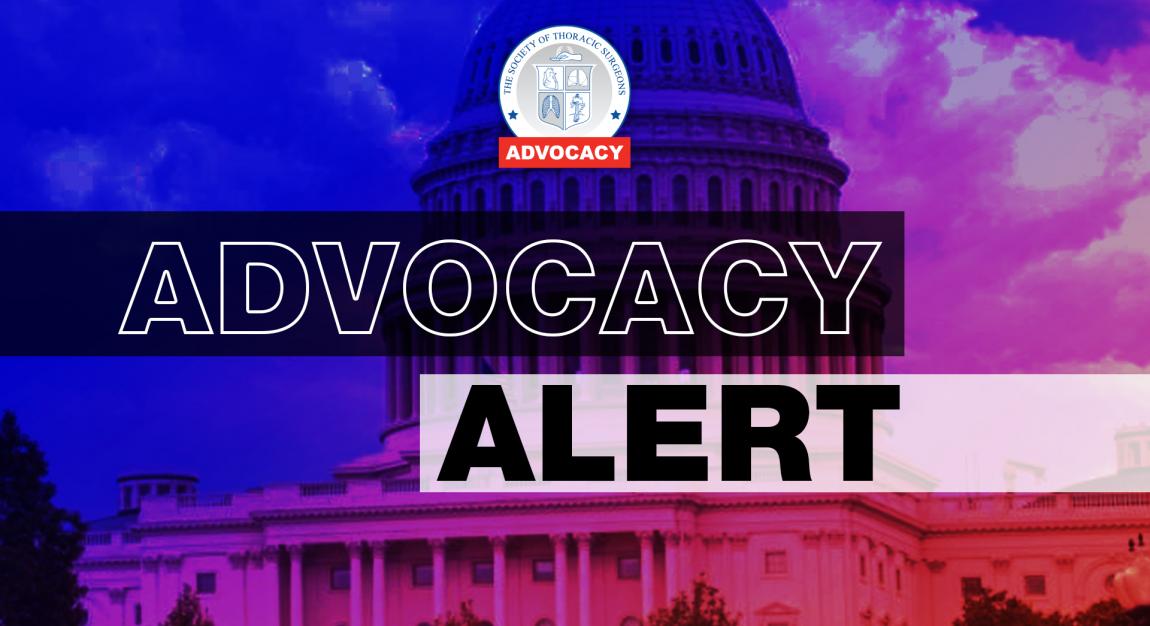This afternoon the Centers for Medicare & Medicaid Services (CMS) released the CY 2025 Medicare Physician Fee Schedule Proposed Rule. STS has compiled a summary of key provisions affecting thoracic surgery in the rule.
Payment Cuts
CMS is again proposing significant cuts to cardiothoracic surgery reimbursement, this time by 2.8%. CMS estimates the CY 2025 conversion factor (CF) to be $32.36. Unlike hospital payments with a built-in yearly increase, physician payments do not have such adjustments. STS will continue lobbying Congress and CMS for systematic reforms and an inflationary update to Medicare payments.
Changes to physician reimbursement often stem from the budget neutrality requirement, which lacks a mechanism for inflationary adjustments. Disruptions occur when the value of specific services change, affecting the reimbursement of other services to maintain budget neutrality. STS and the physician community are advocating for Congress to legislate an inflationary update to the CF and adjust budget neutrality thresholds. For more details, see our recent response to the Senate Finance Committee’s request for information on physician payment.
Quality Payment Program (QPP)
Thanks to advocacy efforts from STS and other stakeholders, Congress has stepped in to extend a 3.5% incentive payment for Advanced Alternative Payment Model (APM) participation in CY 2025 (based on CY 2023 participation). Additionally, starting in payment year 2026, APM participants will be eligible for a higher CF update than other clinicians: 0.75% compared to 0.25%.
STS previously worked with CMS to provide specialty-specific, meaningful measures for our members who participate in the Bundled Payments for Care Improvement (BPCI) Advanced APM. Additionally, this will be relevant for CT surgeons performing CABG procedures under the new TEAM payment model proposed in the inpatient payment rule. CMS is considering, with STS support, allowing TEAM participation to count towards Advanced APM participation under the QPP.
Global Surgical Codes
CMS is proposing to expand the use of transfer of care modifiers for global packages. They would require the use of modifiers (-54, -55, and -56) for all 90-day global surgical packages in cases where a practitioner (or another from the same group) expects to provide only the pre-operative (-56), procedure (-54), or post-operative (-55) portions. This applies to both formally documented and informally expected transfers of care. CMS aims to use the information collected to refine global surgical codes in the future.
In the past, STS has actively promoted the benefits of maintaining the 90-day global code and has refuted flawed data used to advocate for their repeal. We will continue to promote the value of these bundled payments and urge policymakers to extend the increased reimbursement for E/M visits to those packaged in procedural global payments.
Telehealth
CMS has extended telehealth flexibilities where possible, including adding new services to the telehealth list and permitting two-way and real-time audio-only communication technology for any telehealth service. Absent congressional intervention, the future of telemedicine hangs in the balance as the current telehealth flexibilities are scheduled to expire on December 31, 2024. STS urges Congress to permanently extend telehealth flexibilities established during the COVID-19 public health emergency.
